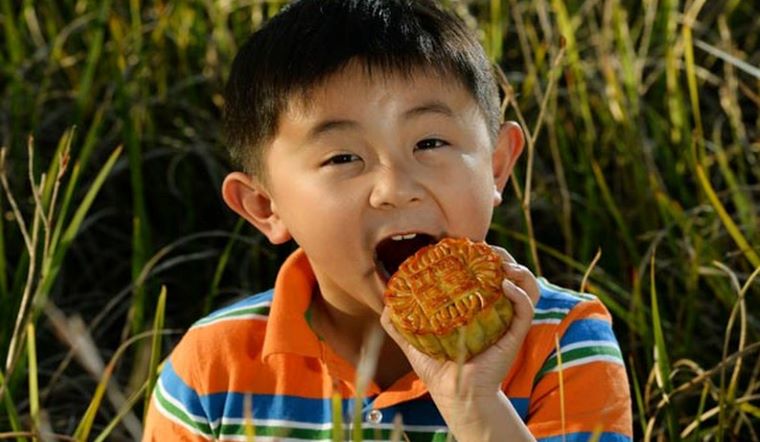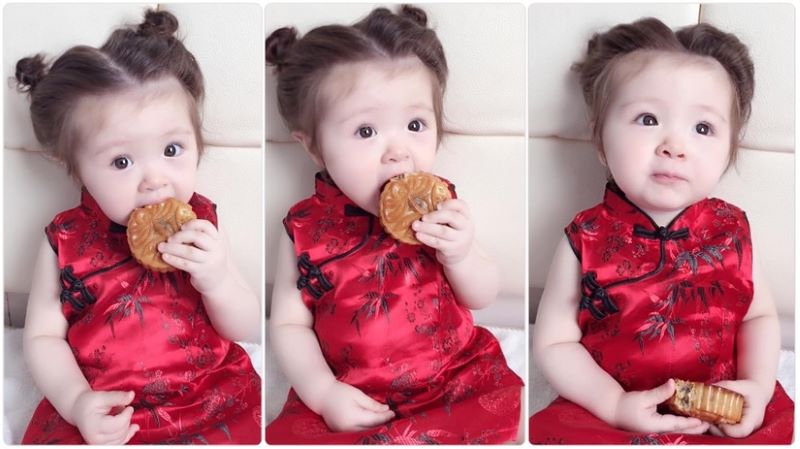Moon Cake is a must-have dish during the Mid-Autumn Festival, a time for family reunion. However, not everyone knows how to eat moon cakes properly, especially when it comes to young children. Overeating moon cakes can have negative effects on children’s health. So, let’s join us in exploring whether it’s a good idea for children to consume these treats.
1 Should Children Eat Moon Cakes?

Whether or not to let children indulge in moon cakes depends on their age. Parents should consider their child’s developmental stage and make an informed decision accordingly.
For Children Under 6 Months Old
At this stage, a baby’s digestive system is not fully developed, and they have not yet started solid foods. Therefore, it is not advisable to introduce moon cakes to infants under six months of age.
For Children Aged 6 Months to 3 Years Old
For toddlers between the ages of 6 months and 3 years, it is acceptable to offer a small piece of moon cake. Avoid giving them excessively sweet or fatty varieties.
Parents should be cautious and prevent choking hazards or allergies to nuts that may be present in the cakes.
For Children Over 3 Years Old
Moon cakes are difficult to digest due to their high fat and protein content. Therefore, it is crucial to control the amount consumed by children in this age group.

According to Doctor Nguyen Van Tien from the National Institute of Nutrition: “Children should eat only one-eighth of a 200g moon cake at a time”. Overindulgence can overload their stomach and intestines, leading to abdominal discomfort, diarrhea, and other issues.
It is recommended to divide the child’s portion wisely, allowing them to enjoy moon cakes without compromising their health.
Note: It is preferable to serve moon cakes in the morning and avoid evening consumption to prevent potential negative impacts on the child’s well-being.
2 Health Concerns Arising from Excessive Moon Cake Consumption in Children
Moon Cakes are Rich in Energy and Fat, Leading to Obesity
As shared by Doctor Nguyen Van Tien from the National Institute of Nutrition of Vietnam: “Moon cakes contain high levels of sugar and fat, providing excessive energy compared to other foods.” Simply put, moon cakes can contribute to childhood obesity due to their high-fat content and calorie count, which is twice as much as a bowl of pho. Moreover, the processed nature of moon cakes makes it easier for the body to absorb these fats.

Potential for Gastrointestinal Symptoms
Overconsumption of moon cakes can overload a child’s digestive system, resulting in abdominal distension, pain, and diarrhea.
Increased Risk of Malnutrition
If a child fills up on moon cakes, they may skip their main meals, leading to malnutrition over time.
Dental Concerns: Risk of Tooth Decay
The high sugar content in moon cakes makes them a contributing factor to tooth decay in children. If your child already has cavities, it is best to limit their consumption of moon cakes. Ensure they brush their teeth immediately afterward to remove any remaining residue.
Food Poisoning

Purchasing moon cakes from unreliable sources or those that do not meet hygiene and preparation standards can lead to food poisoning or other health issues.
Therefore, if you intend to let your child enjoy moon cakes, opt for reputable brands that prioritize quality and safety.
We hope that this information has provided valuable insights and answered your question. Wishing you and your family good health and a warm Mid-Autumn Festival!





































